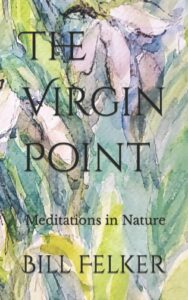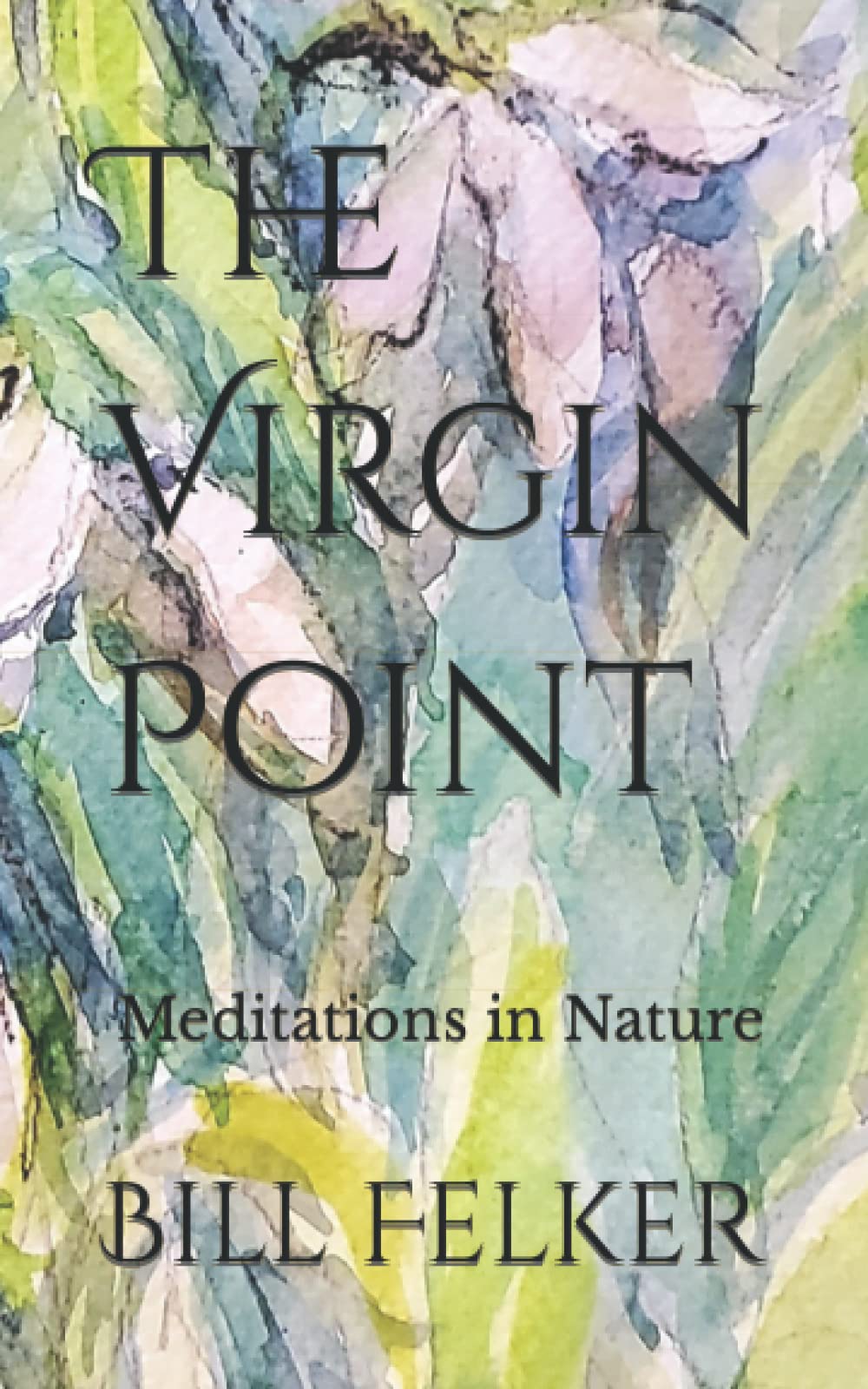THE VIRGIN POINT: MEDITATIONS IN NATURE
Currently available through Amazon
for $15.00
 This collection of 50 essays that have appeared in The Dayton Daily News, The Yellow Springs News and on NPR station, WYSO over the past several decades explores my relationship to the natural world and to the suburban habitat in which I have lived. Throughout these pieces, roughly organized by the seasons, on aging, my Catholic upbringing, and the meaning of life in the natural world in which I find myself, The journey continues in my radio segments and newspaper articles.
This collection of 50 essays that have appeared in The Dayton Daily News, The Yellow Springs News and on NPR station, WYSO over the past several decades explores my relationship to the natural world and to the suburban habitat in which I have lived. Throughout these pieces, roughly organized by the seasons, on aging, my Catholic upbringing, and the meaning of life in the natural world in which I find myself, The journey continues in my radio segments and newspaper articles.
*****
The first chirps of the waking day birds mark the “point vierge” [the virgin point] of the dawn under a sky as yet without real light, a moment of awe and inexpressible innocence, when the Father in perfect silence opens their eyes. —Thomas Merton
Often I read through my journals from past years, going back over notes about flowers, butterfly sightings, rereading descriptions of walks in the woods or fields and along rivers or lakes.
I find that the diary brings images easily to mind, giving color not only to the reimagined landscape but also shape to specific years and then to all the years.
Looking back over each day’s observations, I see something like an autobiography in the entries I have collected. I live again in this way of nature, my movement both linear and radial, binding together consciousness of years with birdcalls and the length of leaves and the opening of flowers.
That narrow focus creates continuity, connection with a vague mood of the people and events of my life, providing feeling and sense of the whole. The myopia does not exclude other acts but instead places them almost inconspicuously inside a sprawling and mottled landscape. Its vision erases differences as much as joins them, blurring but also sorting the happenings and habitats, allowing the past, as well the future, to be a virgin time of longing and possibility.
*****
Samples
Wildwood Park
When I was twelve years old, I used to walk a mile or so along the railroad tracks to Wildwood Park, a recreational area that contained a zoo, a lake and a nature preserve at the edge of Marshfield, a small town in central Wisconsin.
The zoo had, to the best of my memory, a badger, two mink, some buffalo, a family of elk, a ring-necked pheasant, a mountain lion, a bobcat, and a black bear. There was an artificial lake in the middle of the park, stocked with bullheads and sunfish. In a few hundred acres surrounding the zoo and the lake grew a woods thick with honeysuckles.
I always went to Wildwood Park well-armed and ready to survive monsters of the sea and forest. With an old single-shot .22 rifle (small enough to fit down my pants leg), I hunted blackbirds and chipmunks. I caught fish and shot turtles in the lake, evading the police who sometimes came to investigate reports of a boy firing at harmless creatures right in broad daylight.
I was no tourist there to see caged animals, no lover bound for the entanglements of Lover’s Lane. I was too young to care about finding girls. I had come to experiment with autonomy, and social limits were the least of my concerns.
After those days in small-town woods, I went away to school, received a Catholic education, learned boundaries, and then became a teacher in small colleges.
Now, seventy years later, I go back over what it is I was about in my small-town wilderness, sorting out the things I’ve done from things I still can do. I look back and see that Wildwood Park was my center, a brief point of authenticity from which I receded with age and education.
I have no urge now to find a state of nature, hunting and fishing for survival, no desire to go back to the beginning, to be young again, to discover the wood nymphs I never imagined, to relive my first freedom and rebellion.
Settling into the exurban habitat of southwestern Ohio, I grow old trying to understand time, and I find enough of what I might have found and lost, of what I have forgotten and remembered, what I have always been looking for.
Hiding
Well before winter, seed catalogs arrive in my mailbox, and I plan for May under the Bedding Plant Moon. Usually, I order a few packages of geraniums, coleus and petunias, and I start them under grow lights close to the furnace, which happens to be in the attic.
If I keep the soil warm, moist and close enough to the fluorescent bulbs, the seeds germinate within a week or so and then develop steadily throughout the winter.
Although I enjoy the flowers that the plants produce in spring and summer, for me, the best part of sprouting seeds in winter is sitting next to them, feeling safe and disconnected from the snow and from the rest of my life. Hiding here, I am at home.
Here, the only sound is the low purr of the furnace fan. All around me and the plants and the soft lights, the space is dark and private. The smell of new earth thins the musty smell of the attic. I hide, shielded by a comforter that is part childhood, part angel.
It seems that my eyes and my longing itself search the magical glowing green of the sprouts for meaning. All their prophetic power rests in their two or four leaves, all of their potential compressed into the most delicate and vulnerable flesh.
Here there is no thought of maturity or harvest, no logical decision, no socially redeeming value, no death. I do not think about the eventual work of transplanting and mulching, conflicts with insects and weather and blights. Even the promise of beauty, color and fragrance is irrelevant. Only the coverlet of this time in this place with these creatures makes sense.


